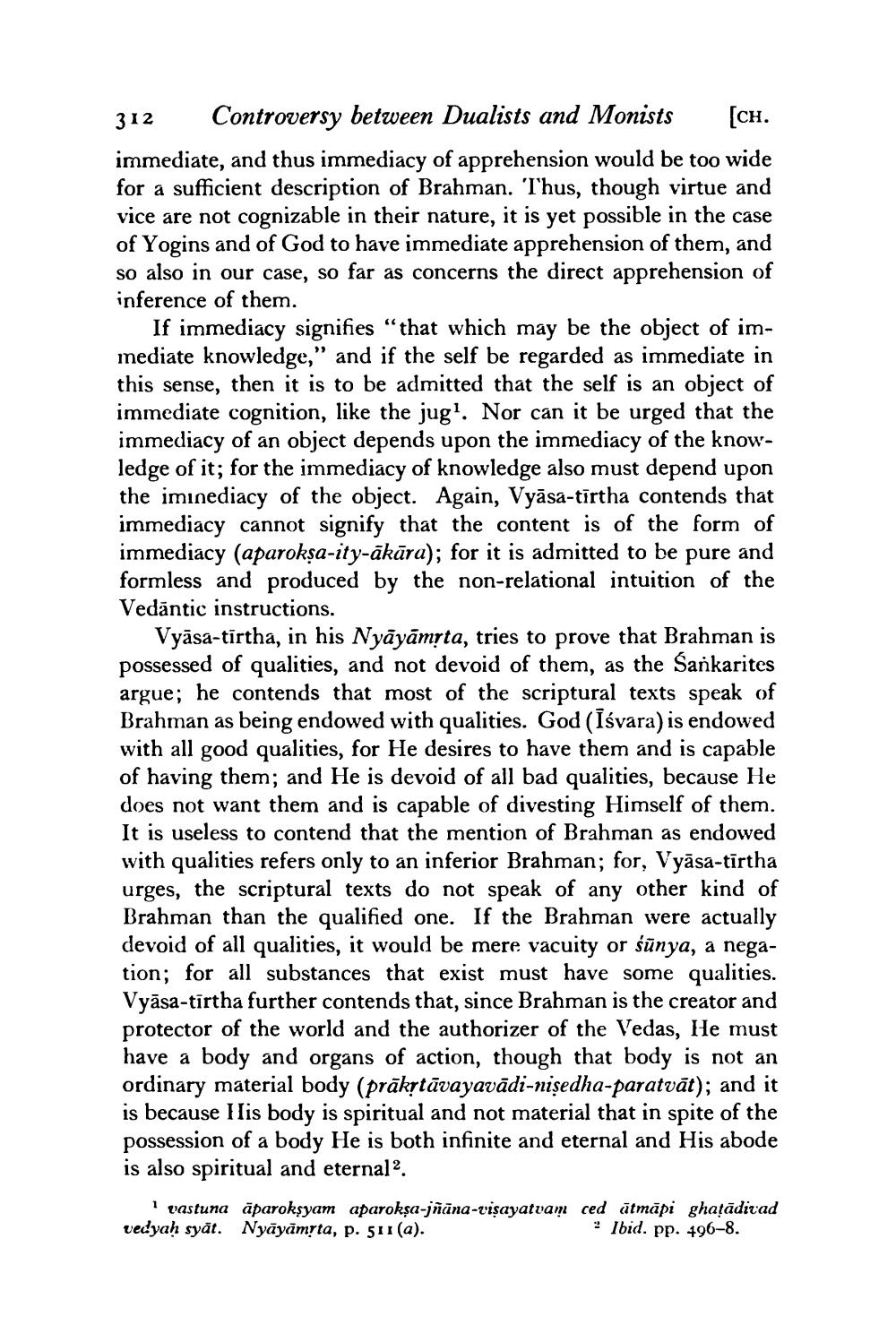________________
312 Controversy between Dualists and Monists [CH. immediate, and thus immediacy of apprehension would be too wide for a sufficient description of Brahman. Thus, though virtue and vice are not cognizable in their nature, it is yet possible in the case of Yogins and of God to have immediate apprehension of them, and so also in our case, so far as concerns the direct apprehension of inference of them.
If immediacy signifies “that which may be the object of immediate knowledge," and if the self be regarded as immediate in this sense, then it is to be admitted that the self is an object of immediate cognition, like the jug?. Nor can it be urged that the immediacy of an object depends upon the immediacy of the knowledge of it; for the immediacy of knowledge also must depend upon the iminediacy of the object. Again, Vyāsa-tirtha contends that immediacy cannot signify that the content is of the form of immediacy (aparokşa-ity-ākāra); for it is admitted to be pure and formless and produced by the non-relational intuition of the Vedāntic instructions.
Vyāsa-tīrtha, in his Nyāyāmsta, tries to prove that Brahman is possessed of qualities, and not devoid of them, as the Sankarites argue; he contends that most of the scriptural texts speak of Brahman as being endowed with qualities. God (īśvara) is endowed with all good qualities, for He desires to have them and is capable of having them; and He is devoid of all bad qualities, because He does not want them and is capable of divesting Himself of them. It is useless to contend that the mention of Brahman as endowed with qualities refers only to an inferior Brahman; for, Vyāsa-tīrtha urges, the scriptural texts do not speak of any other kind of Brahman than the qualified one. If the Brahman were actually devoid of all qualities, it would be mere vacuity or sūnya, a negation; for all substances that exist must have some qualities Vyāsa-tīrtha further contends that, since Brahman is the creator and protector of the world and the authorizer of the Vedas, He must have a body and organs of action, though that body is not an ordinary material body (prākṣtāvayavādi-nişedha-paratvāt); and it is because I lis body is spiritual and not material that in spite of the possession of a body He is both infinite and eternal and His abode is also spiritual and eternal2.
vastuna aparoksyam aparokşa-jñāna-visayatvam ced ātmāpi ghatādivad vedyah syät. Nyāyāmrta, p. 511(a).
? Ibid. pp. 496-8.




